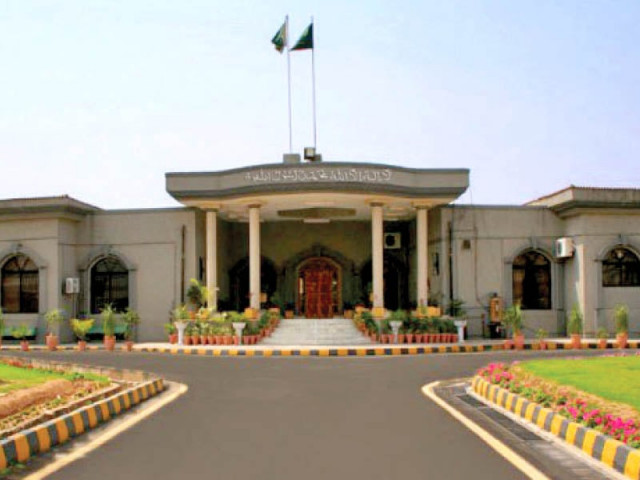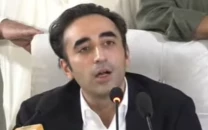IHC bench and bar in catch 22
‘Lawyers movement’ against court’s chief justice accused of illegal appointments, odd twists and turns seen

IHC judge pays surprise visit to GBM of lawyers; urges patience. PHOTO: EXPRESS
But a number of lawyers disagree with this move, to say the least.
Those who know IHC Chief Justice Anwar Khan Kasi, say that he would not leave the office without fighting his case till the end.
Legally, they say, he has a right to stay in office, as a reference and review petitions are still pending before the Supreme Judicial Council (SJC) and the Supreme Court (SC), respectively over the illegal appointments.
They, however, ask how many times appointing authorities have been shown the door for making “illegal” appointments, adding that the lawyers’ demand for the chief justice’s resignation seems “extraordinary” under the circumstances.
Besides, it would be interesting to see if other judges continue working, or support the office of the IHC chief justice if lawyers, as had been planned earlier, hold general body meetings outside Justice Kasi’s courtroom, as supporting the judge as an individual and the office as an institution are two separate things.
On September 26, the SC had declared as null and void all appointments made in the IHC after 2011, with an observation that if the competent authority itself started cherry picking by deliberately ignoring and overlooking meritorious candidates in appointment, the image of the institution would be tainted beyond repair.
Since then, a legion of lawyers has been demanding Justice Kasi’s resignation for his alleged role in making those appointments, including that of his brother, Idrees Khan Kasi.
Following the SC’s judgment, the Islamabad High Court Bar Association (IHCBA)’s General Secretary, Muhammad Waqas Malik, filed a reference against Justice Kasi and former IHC Chief Justice Iqbal Hameedur Rehman – who had been elevated to the Supreme Court from the IHC – on charges of “misconduct” and for violating the oath of office.
In this scenario, lawyers have come to the conclusion that the burden is on the SJC to decide all references pending against judges across the country, adding that “frivolous complainants” should also be penalised for pressurising judicial officers.
Some law experts have expressed that the demand of resignation is aimed at dividing the bench and bar and would set an example where anybody can accuse a judge for any reason and refuse to settle for anything less than an exit from the office.
Recently, IHC’s Justice Shaukat Aziz Siddiqui walked into a general body of the lawyers and asked them to stop demanding an immediate resignation from Justice Kasi. He instead urged them to wait for the final outcome of the reference filed by their colleagues in the SJC.
Malik, however, said the lawyers would not accept “dictation by any judge”. But, he was careful to add that their next step would be planned with an open mind.
In the meantime, those familiar with the situation agreed to the notion that the impact of “surrendering to pressure” would greatly affect the lower judiciary, where lawyers’ bodies are already in a position to halt the court proceedings at any given time.
Meanwhile, several references are pending against different judges. If they all, morally, decide to stop working until the references against them were decided, the suffering of litigants across Pakistan would definitely increase manifold.
Initially, lawyers had announced a lockdown of the IHC chief justice’s court if he did not resign, but later they decided to hold off on the move and adopt other options to keep building pressure on the judge and others.
Perhaps, they have realised that every citizen, whether dressed in shalwar kameez, T-shirt and jeans, suit and tie, or judicial robes, is innocent until proven guilty.
Published in The Express Tribune, November 21st, 2016.



















COMMENTS
Comments are moderated and generally will be posted if they are on-topic and not abusive.
For more information, please see our Comments FAQ